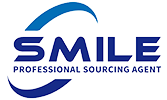In the global fashion industry ,apparel sourcing agents play a crucial role in connecting manufacturers, suppliers, and retailers, ensuring that garments are produced efficiently, cost-effectively, and with high quality. As the fashion market becomes increasingly competitive and fast-paced, sourcing agents have become indispensable for brands looking to maintain a steady supply chain, manage costs, and stay ahead of trends.
This article will delve into the vital role of apparel sourcing agents in the garment manufacturing industry, explore the top global centers for garment sourcing, explain how these agents bridge the gap between manufacturers and suppliers, and highlight the ways they negotiate win-win deals, oversee production, ensure quality, and navigate industry challenges.

The Growing Importance of Apparel Sourcing Agents
In the modern garment industry, having an effective supply chain is essential for any brand or retailer. Sourcing agents ensure that all elements of the supply chain—from fabric suppliers to garment manufacturers—are functioning in harmony. Their expertise in managing various aspects of the production process allows brands to focus on design, marketing, and sales while the agents handle procurement, production timelines, quality control, and logistics.
Sourcing agents are particularly valuable in today’s fashion industry for several reasons:
- Globalization of production: As brands look for the best manufacturing opportunities around the world, sourcing agents help navigate different countries’ regulations, labor standards, and cost structures.
- Supply chain complexity: The garment industry often involves multiple suppliers for fabrics, trims, zippers, and other materials. Sourcing agents streamline this complexity, ensuring all parts of the supply chain are integrated.
- Speed to market: The fast fashion business model requires a quick turnaround from design to store shelves. Sourcing agents help speed up this process by identifying the best manufacturers and negotiating timely production schedules.
- Quality assurance: With production often happening overseas, quality control can be a challenge. Apparel sourcing agents ensure that products meet a brand’s quality standards through regular factory visits, inspections, and detailed oversight.
Top Global Centers for Garment Sourcing
Different regions around the world have emerged as key players in garment sourcing, each offering unique advantages based on their labor force, production capacities, and industry expertise. Apparel sourcing agents often have a deep understanding of these regions, allowing them to leverage the strengths of each market to benefit their clients.
China
China remains one of the top global centers for garment manufacturing due to its vast industrial infrastructure, advanced technology, and ability to produce at scale. Many sourcing agents have strong networks in China and are well-versed in navigating its complex regulatory landscape. Chinese manufacturers are known for their flexibility in handling various garment types, from high-end fashion to mass-produced clothing for global retail chains. Moreover, China has a well-established supply chain for raw materials like cotton, silk, and synthetic fabrics, making it a one-stop destination for garment sourcing.

Bangladesh
Bangladesh has become a global leader in garment manufacturing, particularly for mass-market clothing. With one of the largest garment industries in the world, Bangladesh offers low labor costs and high production capacity. Sourcing agents working in this region often specialize in ensuring compliance with international labor standards and managing large-scale orders. The country’s ability to produce large quantities of garments at competitive prices makes it a preferred destination for brands looking to scale their operations.
Vietnam
Vietnam is another growing player in the garment industry, known for its skilled workforce and high-quality production capabilities. Many sourcing agents have shifted their attention to Vietnam due to its increasingly competitive labor costs and the country’s focus on producing more value-added garments. Vietnam also benefits from various free trade agreements, which make it an attractive option for brands looking to reduce tariffs and access global markets more easily.
India
India has a long history in textiles and garment manufacturing, with expertise in producing everything from basic cotton garments to high-fashion pieces. Apparel sourcing agents working in India often focus on its artisanal crafts, fabrics, and natural fibers, which add value to luxury and eco-conscious brands. India is also recognized for its ability to produce garments with intricate embroidery, handwork, and unique designs, making it a favorite for brands seeking distinctive products.
Other Emerging Markets
Beyond the established centers, other regions like Turkey, Indonesia, and Cambodia have also become important players in the global garment industry. Each region has its own set of advantages, including proximity to major markets, favorable trade agreements, or specialized skills in certain types of garment production.

Bridging the Gap Between Manufacturers and Suppliers
One of the most critical functions of anapparel sourcing agentis to bridge the gap between garment manufacturers and suppliers. Sourcing agents ensure that all parties involved in the supply chain—from fabric suppliers to sewing machine operators—are working together smoothly and efficiently.
Supplier Management
Sourcing agents are responsible for identifying and managing suppliers that align with the brand’s quality standards, cost requirements, and delivery schedules. This process involves careful vetting of factories, ensuring that they have the capacity to handle large orders and meet deadlines. Agents also build relationships with multiple suppliers, providing brands with more flexibility in case one supplier falls short or production demands change.
Manufacturer Coordination
In addition to sourcing raw materials, agents work closely with garment manufacturers to ensure the production process runs smoothly. They are often on-site at factories, managing everything from sample approvals to final inspections. By overseeing every step of production, sourcing agents can ensure that garments are made to the brand’s specifications and meet any specific regulatory requirements for the destination market.
Communication
One of the key challenges in the global garment industry is communication. Time zone differences, language barriers, and cultural misunderstandings can create delays or misaligned expectations. Apparel sourcing agents are skilled at navigating these challenges by acting as a central point of communication. They translate technical details, mediate conflicts, and ensure that both the brand and the manufacturer are on the same page throughout the production process.
Negotiating Win-Win Deals
A key function of apparel sourcing agents is their ability to negotiate favorable deals that benefit both the brand and the manufacturer. Their experience in the garment industry allows them to secure the best possible terms while maintaining positive relationships with suppliers and manufacturers.
Cost Negotiation
Sourcing agents use their knowledge of the market and their relationships with factories to negotiate competitive pricing. They understand the cost structures in different regions and can identify opportunities to reduce costs without compromising quality. This is especially important for brands that are working with tight budgets or looking to scale their production. By negotiating bulk discounts or favorable payment terms, sourcing agents help brands stay competitive in the market.
Production Timelines
In the fast-paced fashion industry, meeting production deadlines is critical. Apparel sourcing agents negotiate realistic timelines with manufacturers and suppliers, ensuring that orders are completed on time. Their ability to manage logistics and handle unforeseen delays allows brands to maintain a steady flow of inventory and meet consumer demand.
Quality Assurance Terms
Sourcing agents also negotiate quality assurance terms with manufacturers, including agreed-upon inspection processes, defect rates, and penalties for non-compliance. This helps ensure that the final product meets the brand’s standards and reduces the risk of costly returns or product recalls.

Overseeing Production and Ensuring Quality
One of the most critical roles of an apparel sourcing agent is to oversee the entire production process and ensure that quality standards are met. From the initial stages of fabric selection to the final product inspection, sourcing agents monitor every step of the manufacturing process.
Factory Audits
Before production begins, sourcing agents often conduct factory audits to ensure that the chosen manufacturer has the capacity to meet the brand’s requirements. These audits include evaluations of the factory’s facilities, equipment, labor practices, and previous production quality. Sourcing agents may also review certifications and compliance with international labor standards to ensure that the factory meets ethical sourcing guidelines.
On-Site Production Oversight
During production, sourcing agents often visit factories to oversee operations. This hands-on approach allows them to address any issues that arise during production, such as defects, delays, or changes in the order specifications. By being on-site, they can quickly make decisions to keep production on track and ensure that quality is maintained at every stage.
Quality Control Inspections
Apparel sourcing agents are responsible for conducting quality control inspections throughout the production process. This includes checking raw materials, inspecting sample garments, and reviewing finished products before they are shipped. By catching any quality issues early, sourcing agents help prevent defects from reaching consumers, protecting the brand’s reputation and reducing the risk of costly returns or recalls.
Navigating Challenges and Finding Solutions
The garment industry is full of challenges, from fluctuating material costs to shipping delays and supply chain disruptions. Experienced apparel sourcing agents are adept at navigating these challenges and finding solutions that keep production on track and within budget.
Managing Supply Chain Disruptions
Sourcing agents often work with multiple suppliers and manufacturers, providing flexibility in case of supply chain disruptions. If a factory faces delays or a supplier runs out of raw materials, sourcing agents can quickly shift production to an alternative factory or source materials from a different supplier. This agility helps brands avoid costly delays and maintain a steady flow of inventory.
Addressing Quality Issues
When quality issues arise, sourcing agents act quickly to resolve them. Whether it’s a problem with the fabric, stitching, or final product finish, sourcing agents work with the manufacturer to make adjustments and ensure that the final product meets the brand’s standards. Their ability to troubleshoot and find solutions helps brands maintain quality without costly reworks or delays.
Managing Costs
Fluctuations in material costs, labor rates, and shipping fees can impact a brand’s profitability. Sourcing agents continuously monitor the market and look for opportunities to optimize costs. Whether it’s finding alternative suppliers, negotiating better shipping rates, or adjusting production schedules, sourcing agents help brands manage costs and stay competitive.
Conclusion
In today’s highly competitive and fast-paced garment manufacturing industry, the role of apparel sourcing agentshas never been more critical.


